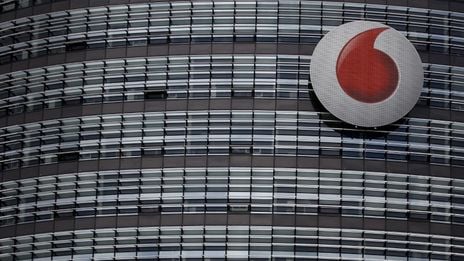After 14 days of bidding, the industry ministry announced an end to hostilities on Tuesday after selling some of the most prized spectra on offer for more than twice the 2.5 billion euros it had set as a minimum target.
Italy is one of the first countries in Europe to offer frequencies for 5G services, allowing operators to roll out ultra-fast internet connections to Italian homes and businesses.
The record outlay could be a bonanza for the country's anti-establishment ruling coalition that is struggling to find cash to fund welfare and tax spending while paying down debt.
But the bidding war has raised questions about the sustainability of investments for telecoms operators facing ever tougher competition.
Italy's biggest phone group Telecom Italia spent more than 2.4 billion euros for airwaves over the two weeks of bidding in a move expected to raise debt at the former telecom monopoly.
TIM, which expects to pay out around 480 million euros of the bill this year, said it had spent more on spectra and won more bandwidth than its competitors as it gears up to roll out new 5G services to connect consumers to the internet of things.
"The new frequencies acquired represent a fundamental asset for the future development of the group," said TIM CEO Amos Genish.
Andrea Scauri, fund manager at Italy's Ifigest, said he had pulled out of TIM a while back and was not going back in the foreseeable future. "They have a lot of debt which they need to resolve and the 5G has not exactly helped," he said.
CHALLENGE
Increasing competition and changing technologies have pressured telecom operators' profits, undermining share performance.
On Wednesday, TIM's shares were up 0.4 percent by 0850 GMT after falling sharply in recent weeks on worries over the higher-than-expected spectrum spend and increasingly tougher competition in both fixed services and mobile.
TIM's competitor Vodafone Italy spent nearly as much, buying airwaves in three frequency ranges for a total of 2.4 billion euros. It said some of the airwaves it bought could be immediately used to enhance coverage and improve capacity.
France's Iliad, which entered the Italian market in May to offset tough competition at home, said it paid 1.19 billion euros in the auction.
Bernstein analysts said given the life of the spectrum is 20 years, turning a profit would be a challenge though not improbable. "Today, it stings. Longer-term, the strategic benefit accrues to TIM and Vodafone," they said in a research note.
Some telecom operators had previously threatened to stay away from the auction because of what they saw as a high starting price and punitive bidding rules.
The higher-than-expected financial outlay could impact TIM's ambition to return to an investment grade rating next year.
TIM, whose biggest shareholder is French media giant Vivendi, faces increasing competition at home after Iliad's entry and domestic broadband rival Open Fiber's decision to roll out a new ultrafast fibre network across Italy.
The phone company, which is saddled with 25 billion euros of net debt, is also facing headwinds from currency devaluation in Brazil and a bitter dispute between Vivendi and activist shareholder Elliott.
(The story was refiled to add dropped word "entry" in penultimate paragraph)
(Additional reporting by Paul Sandle; Editing by Edmund Blair and Emelia Sithole-Matarise)
By Stephen Jewkes






